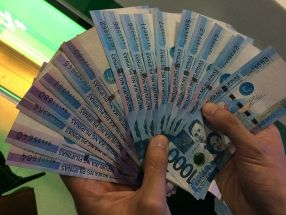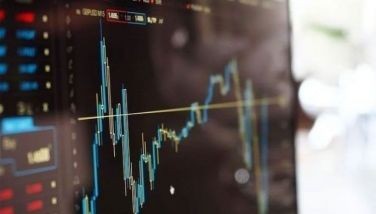Trying to be normal again

Fully vaccinated passengers will not be subject to any quarantine mandate upon arrival in the US by November. The White House announced last Monday that they will relax current pandemic control rules.
Fully vaccinated foreign nationals and American citizens returning from abroad must take a pre-departure COVID-19 test within three days (which was what we did) and show proof of a negative result before boarding.
The US CDC will issue a contact tracing order requiring airlines to collect information from US-bound passengers to alert them of potential exposure. The airline we took for Los Angeles already did that two months ago.
Fully vaccinated, according to the CDC, includes those who have received not only vaccines approved in the US, but those listed for emergency use by the WHO. I guess that includes Astra Zeneca and yes, Sinovac.
In Europe, Denmark lifted all remaining COVID restrictions last Sept. 10. The Danish government now considers COVID-19 no longer “an illness which is a critical threat to society.”
The Danes now have a transmission rate or R-rate of 0.7, meaning the epidemic is on a decline. If it is above 1.0 as is in our case, cases are still going to increase in the near future. But OCTA said last Sept. 18 our R-rate is down to 1.22. It could change due to a backlog in submission of reports and hospitals are still full.
Singapore is trying to live with the virus, but Delta is making that difficult to do. Their strategy to control outbreaks includes vaccines and monitoring hospitalizations rather than restricting the lives of their citizens.
While Singapore is now allowing fully vaccinated people to dine in restaurants, health officials warned they may reimpose restrictions if they are unable to control the Delta outbreak.
Singapore’s COVID task force, co-chaired by the finance minister, said it would try to limit the outbreak through a more aggressive contact tracing, “ring-fencing” cases and clusters, and more frequent mandatory testing for high-risk workers.
Thailand’s vaccine take-up has been slow, but will open up its tourism sector anyway. Under their plan, tourists who are fully vaccinated against COVID-19 and commit to a testing regime will be allowed to enter Bangkok and tourism hot spots like Chiang Mai.
Phuket reopened to vaccinated foreign tourists on July 1 without quarantine requirements. On July 15, the islands of Koh Samui, among others, were similarly opened.
Of course, officials of these countries are worried and cautious about another spike in cases. According to CNN, experts have warned of low vaccination rates in many ASEAN countries and the widespread use of lower efficacy vaccines, including Sinovac, could lead to another spike.
Nevertheless, some ASEAN governments have decided they need to try opening up, specially the tourism sector.
Here, Tourism Secretary Berna Romulo Puyat is busily vaccinating tourism workers, but IATF finds it difficult to open up. We also have all sorts of crazy and money making rules for international passenger arrivals.
The other thing happening is the reopening of schools. In the US, guidelines for face-to-face classes include proper ventilation of classrooms, vaccination of teachers and students, and wearing of face masks.
Trying to balance health, economic and other issues is undoubtedly difficult, but countries other than ours are making cautious moves to get back to as normal a situation as possible.
Our own NEDA has outlined why our COVID response must be more boldly creative and use strategies other than lockdowns, which Harry Roque admitted no longer works.
In a recent presentation, NEDA Secretary-General Karl Kendrick Chua pointed out the following concerns:
“The long-run total cost of COVID-19 and the quarantines to present and future society is estimated at P 41.4 trillion (in NPV terms). The cost in 2020 is estimated at P 4.3 trillion. The long-run (next 10 to 40 years) is estimated at P 37 trillion.
“Consumption and investment will be lower in the next 10 years due to lower demand in sectors that require social distancing (e.g., amusement, tourism, restaurants, public transportation). Consequently, tax revenues will be lower.”
There is hope that after the 10th year, the economy is expected to converge to the pre-pandemic growth path. Wow! 10 years! NEDA warned that the impact on productivity is likely to be permanent.
The state of education has also suffered significantly in the absence of face-to-face learning. Secretary Chua pointed out that “To our knowledge, no other country in East Asia closed their schools for face-to-face learning for an entire year.”
The NEDA presentation also noted the inability of some students to engage in distance learning, resulting in an enrollment decline of 1.1 million (or around five percent). Some 865 private schools reportedly closed down.
“Based on US studies, online learning is only around 52 percent as effective as face-to-face learning. Other forms of learning (e.g., module) may be less effective and are estimated at 37 percent as effective as face-to-face learning.
“In a NEDA online survey, almost 60 percent of families have one parent who skips work to teach their children. This results in 25 percent forgone income.”
For the school year 2021-2022, only 120 public and private schools in areas with low infection rates will be allowed to have very limited face-to-face learning. There is uncertainty when students will be allowed to go to school physically.
Secretary Chua warned that the consequences of no face-to-face classes include: less learning and lower future income, productivity, and competitiveness.
ADB estimates that each year of lost schooling translates to around 10 percent permanent lower wages in the future. “All these mean the pandemic and school closure are exacerbating the already unequal access and lower quality of education in the Philippines.”
Well… the economic managers have crunched their numbers and tough decisions must be made. I wonder if Duterte even understands the serious implications of his stubborn refusal to correct wrong decisions and his administration’s failure to implement proper pandemic control strategies.
If we only had leaders who listened to better advice in managing the pandemic other than Pharmally … we could be in a good position to try getting back to normal by now.
Boo Chanco’s mail address is [email protected]. Follow him on Twitter @boochanco
- Latest
- Trending































